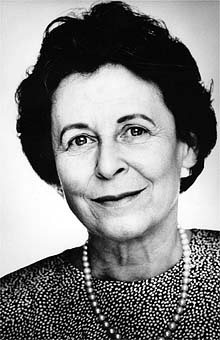If a politician murders his mother, the first response of the press or of his opponents will likely be not that it was a terrible thing to do, but rather that in a statement made six years before he had gone on record as being opposed to matricide.

"Mary Ellen (Meg) Greenfield" (December 27, 1930 – May 13, 1999) was a Washington Post and Newsweek editorial writer and a Washington, D.C., insider known for her wit and for being reclusive.
Greenfield was born in Seattle to a Jewish family, where she attended The Bush School. She graduated summa cum laude from Smith College in 1952. She also studied at University of Cambridge/Cambridge University as a Fulbright Scholar and was friends there with Norman Podhoretz, who also went on to a distinguished career in journalism.
She became influential in a male-dominated world and a close confidante of Post publisher Katharine Graham. She was awarded journalism’s highest honor, a Pulitzer Prize for Editorial Writing, in 1978 and spent 20 years as the editorial page editor for the Washington Post and 25 years as a columnist for Newsweek. She influenced generations of Washington Post writers.
She never married, something she came to regret. When diagnosed with cancer, Greenfield partly retired to Bainbridge Island in her native Washington (U.S. state)/Washington, where she wrote a posthumously published memoir entitled Washington. She died of the disease, at age 68.
If you enjoy these quotes, be sure to check out other famous editors! More Meg Greenfield on Wikipedia.We are fickle and we are insatiable in our appetite for new news, new biases, new cliches.... It's not just... that individuals all seem to get their fifteen minutes of celebrity; everything gets only fifteen minutes.
There is such a thing as tempting the gods. TalkIng too much, too soon and with too much self-satisfaction has always seemed to me a sure way to court disaster.... The forces of retribution are always listening. They never sleep.
Ninety percent of politics is deciding whom to blame.
Everybody's for democracy in principle. It's only in practice that the thing gives rise to stiff objections.
Copyright © 2024 Electric Goat Media. All Rights Reserved.